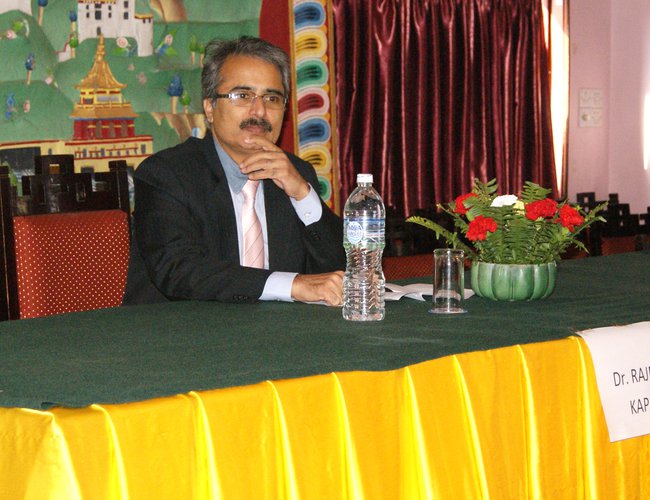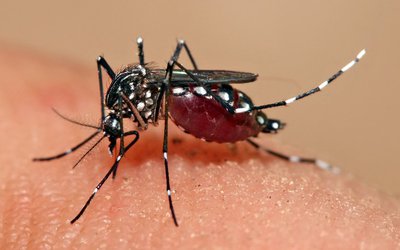
“Nepal is facing big threat for death from heart disease. According to study data CVD is responsible for 1 in 4 deaths every year in Nepal. Given the exponential rise in risk factor responsible for onset heart disease it is expected that by 2030 Cardiovascular disease will account for 35% of all deaths in country,” said Dr Rajneesh Kapoor, senior Director Interventional Cardiology at Medanta Hospital, Gurgaon – India.
Applying newer technologies to better treatment outcomes & reduce death rates in heart patients Cardiologist Dr Rajneesh Kapoor Gurgaon eyeing to treat heart patients with the assistance of technology that uses sensors and nanochips to monitor heart health condition from home, that could act as life saver to long distance patients such as from Nepal.
Dr Kapoor, who is hailed as eminent interventional cardiologist worldwide, with Government of India recognition as Punjab Rattan, was in Nepal for a workshop on complex cardiac procedures. Addressing the media Dr Kapoor said that not all people die of heart attack. “There is a considerable proportion of a patient who suffers from heart failure, a type of heart disease in which the heart cannot pump properly,” said Dr. Kapoor.
According to a press release issued by Marketing Advertising Research Solution (MARS) Pvt. Ltd, more people are surviving heart attacks & thus face higher heart-failure risk afterwards. Another key driver is the aging, as this is a chronic condition that plagues the elderly. The rise in diabetes and obesity is also a trigger.
Dr Kapoor said, “in order to reduce the death rates in heart patients, we at Medanta have been & shall be the first provide cardiac treatments with newer modern technologies. “The use of FFR tech prevents unnecessary stinting. Another latest 21st century technology called OCT assists in accurate placement of stents which means 100 % complete blood flow to heart hence increasing treatment efficiency by 5 times. It is also very useful in treating patients where bypass surgery is risky.” He said Dr Kapoor told “The use of miniaturing technology comes as boom to heart failure patients. By this we place multiple sensors more precisely on different chambers of heart, allowing more coordination. These sensors can monitor other things, like oxygen levels in the blood, physical activity, body temperature, adrenaline and hormone levels, syncing that information to regulate heart rate more akin to what the heart does naturally.”
“Data shows that if the patient comes to us & they are short of breath & having symptoms, it’s already too late. Hence in order to secure lives of heart patients we are diligently working to provide health monitoring from homes, a step that saves patient from giving repeat visits to hospital and detect any symptom much in advance. This will be life saving especially to far distance patients,” said Dr. Kapoor , in a press release issued by Marketing Advertising Research Solution (MARS) .
“One such technology to be introduced very soon will be monitoring vests. A vest patient can wear over their clothes that uses radar technology originally developed by the military to scan inside the body and monitor fluid build-up in the lungs. As the heart ceases to pump blood properly, fluid backs up into the lungs, causing shortness of breath, swelling and other symptoms. The problem starts about week or two before the patient feels it. Instead of waiting for patients to report symptoms, patients can simply don the vest (the scan takes about three minutes' total). The information will be transmitted wirelessly to us, who can conduct further assessments, recommend dietary changes and intervene with medication.”
Dr Kapoor also issued advisory for the prevention of heart disease. He appealed people to contribute as much as possible to curb atmospheric pollution. He urged people to live heart -friendly lifestyle which incorporates high intake of fruits & vegetables, regular exercise, moderate drinking, quit smoking completely, 8 hours of sleep, avoid binge drinking and manage stress.
- The Situation Pushes Women Journalists To Speak Louder, Experts Emphasize
- Jun 30, 2025
- SPI NEPAL: Prosperity Through Clean Energy
- Jun 30, 2025
- PM Oli Meets Spanish Prime Minister
- Jun 30, 2025
- FM Dr. Rana Said Nepal recognises constitutional guarantees to citizens' right to food
- Jun 30, 2025
- Weather Forecast: Generally Cloudy With Heavy Rainfall Is Likely In One Or Two Places Of Kathamandu, Biratnagar And Pokhara
- Jun 30, 2025















